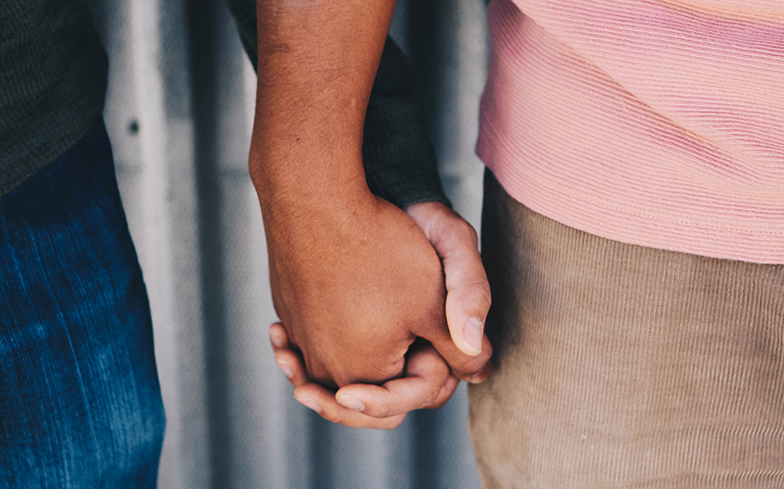
Since February is LGBT History Month, I decided to examine the sometimes overlooked but very important history of the UK Lesbian & Gay Immigration Group (UKLGIG).
The urgency and determination with which the grassroots organisers of this charity responded to the immigration challenges they faced led to pioneering legislative change in the UK and has a powerful and equally vital equivalent in UKLGIG’s work with asylum claimants today.
It was campaigning by UKLGIG – or the Stonewall Immigration Group, as the organisation was then known – which saw same-sex couples recognised for the first time in British law in October 1997. This positive legal recognition came with the Unmarried Partners Concession.
The Unmarried Partners Concession enabled individuals to apply for their non-UK resident partners to remain in the UK, but with a four-year cohabitation requirement. The four-year requirement was a high threshold and effective campaigning by UKLGIG saw the Concession amended in June 1999, with the cohabitation period reduced to two years.
The monumental shift represented by the Unmarried Partners Concession often goes unnoticed in the broader discussion surrounding the Civil Partnership Act 2004 and the Marriage (Same Sex Couples) Act 2013.
UKLGIG was founded in 1993, following the applications of four same-sex couples to the Home Office for them to remain together in the UK based on their relationships. The couples and their lawyers began to work together, especially when they were refused permission for the partner to stay in the UK and the cases went to appeal.
A turning point came in early 1994, when the Immigration Appeal Tribunal decided that a parallel should be drawn between the way in which unmarried opposite-sex partners and unmarried same-sex partners were treated. Despite resistance from some politicians, over the subsequent two years there were at least 20 or more successful applications by a same-sex partner. UKLGIG had gained momentum, creating pressure for change and also encouraging more people to apply.
A series of conversations between UKLGIG and politicians took place in the run up to the May 1997 general election. A commitment was secured from Jack Straw, the Shadow Home Secretary, that a Labour administration would recognise same-sex couples for immigration purposes. This commitment ultimately resulted in the Unmarried Partners Concession five months after the election, with all outstanding same-sex immigration appeals adjourned in the intervening period.
The Unmarried Partners Concession became an Immigration Rule in October 2000 and it was in November 2004, with the Civil Partnership Act, that full legal parity for same-sex couples on immigration was achieved.
Following these landmark successes, UKLGIG decided to concentrate its immigration efforts on asylum claimants, the group most in need. In its current form UKLGIG helps asylum claimants across the LGBTQ spectrum.
LGBT History Month is a time for reflection, as well as celebration. We need to remember the many LGBTQ asylum claimants held in detention centres now, where they suffer from systemic homophobic, biphobic and transphobic harassment and abuse.
The Home Office is maintaining a bizarre and cruel system of immigration detention. The Government has rejected the very reasonable demand for a maximum 28 day detention limit. There is currently no upper time limit on how long people can be held. Similarly, the Government has not taken on board recommendations to end the detention of LGBTQ people altogether.
We should take inspiration from those early campaigners in the 1990s, who so persistently and effectively fought for equal immigration rights for same-sex couples. UKLGIG evolved into a charity helping the most vulnerable in society and I would encourage the LGBTQ community in the UK not to forget those on the margins.
We cannot take the positive changes which have taken place in the UK for granted. It would be wonderful to see all LGBTQ people, including asylum claimants, treated with dignity and respect in the UK.
If you would like to learn more about the Unmarried Partners Concession, I recommend this personal and insightful account of how the Concession came about.
You can follow Philip Baldwin on Twitter @philipcbaldwin



